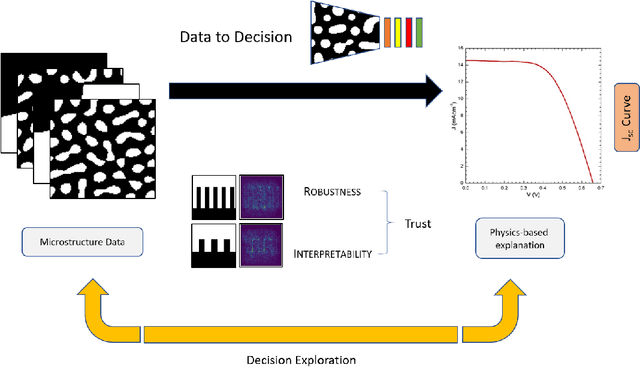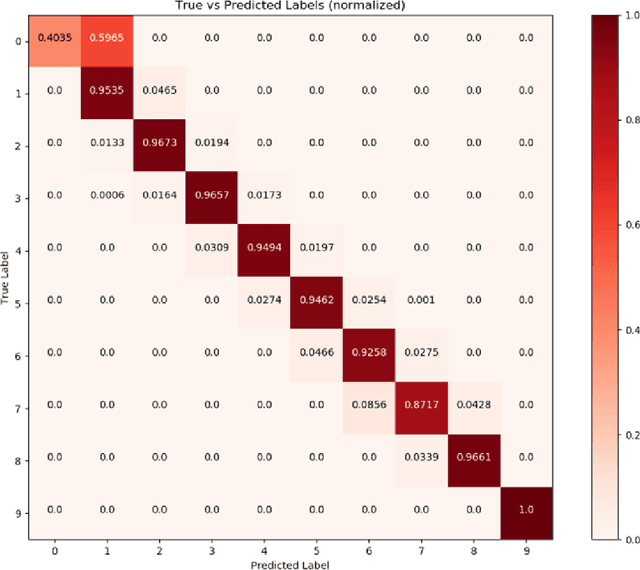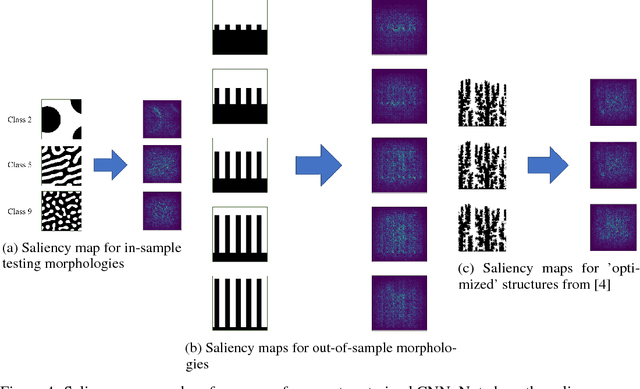Balaji Sesha Sarath Pokuri
Interpretable deep learning for guided structure-property explorations in photovoltaics
Dec 12, 2018



Abstract:The performance of an organic photovoltaic device is intricately connected to its active layer morphology. This connection between the active layer and device performance is very expensive to evaluate, either experimentally or computationally. Hence, designing morphologies to achieve higher performances is non-trivial and often intractable. To solve this, we first introduce a deep convolutional neural network (CNN) architecture that can serve as a fast and robust surrogate for the complex structure-property map. Several tests were performed to gain trust in this trained model. Then, we utilize this fast framework to perform robust microstructural design to enhance device performance.
PARyOpt: A software for Parallel Asynchronous Remote Bayesian Optimization
Sep 12, 2018



Abstract:PARyOpt is a python based implementation of the Bayesian optimization routine designed for remote and asynchronous function evaluations. Bayesian optimization is especially attractive for computational optimization due to its low cost function footprint as well as the ability to account for uncertainties in data. A key challenge to efficiently deploy any optimization strategy on distributed computing systems is the synchronization step, where data from multiple function calls is assimilated to identify the next campaign of function calls. Bayesian optimization provides an elegant approach to overcome this issue via asynchronous updates. We formulate, develop and implement a parallel, asynchronous variant of Bayesian optimization. The framework is robust and resilient to external failures. We show how such asynchronous evaluations help reduce the total optimization wall clock time for a suite of test problems. Additionally, we show how the software design of the framework allows easy extension to response surface reconstruction (Kriging), providing a high performance software for autonomous exploration. The software is available on PyPI, with examples and documentation.
 Add to Chrome
Add to Chrome Add to Firefox
Add to Firefox Add to Edge
Add to Edge